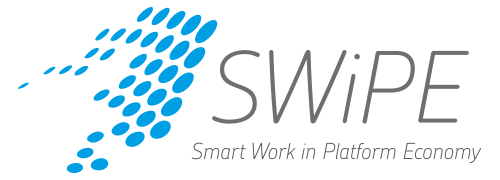
In the future of work many professionals will face completely new challenges during their careers; challenges that do not have standard solutions. Solving these kinds of problems typically requires capabilities that combine different professional skills and academic knowledge with new ways of looking at the world. Depending on once learned skills is no longer enough: expertise needs to be more adaptive.
Adaptive expertise is defined by a drive to acquire skills and capabilities that help one adjust to the requirements of a changing work environment and to respond to new professional challenges. In addition, adaptive expertise is also characterised by a desire to affect that environment. Deliberate action is central to adaptive expertise. Indeed, adaptive expertise can be described as a deliberate effort to build new skills and capabilities, to critically evaluate established professional practices and to create and contribute new professional knowledge and processes.
In my doctoral research, I studied experts in energy efficiency – an excellent example of a fast developing, knowledge intensive, and interdisciplinary field at the crossroads of many professions. It does not yet have standardised professional training models, and often workplaces are not able to offer specialised knowledge to support professional development. My research showed that, especially in these kinds of rapidly transforming fields, adaptive expertise is central to professional development. In addition, organisational and process development are often tied to the activity of employees who exhibit adaptive expertise.
My research showed that those energy efficiency professionals who exhibit an adaptive expertise orientation were most ready to step outside of their comfort zones, eagerly sought new professional challenges and information and were ready to apply new knowledge in their work. These professionals also readily built social networks and leveraged the resources they found through their contacts. In contrast to conventional dynamics, even young and relatively inexperienced professionals were able to play central boundary spanning roles. This last requires a willingness to actively develop one’s own expertise and to contribute to the progress of the field.
The faster working life changes, and the more complex working environments and professional challenges become, the more professionals need the ability to adapt their activity and skills. A central question is how might professionals be supported in meeting future challenges. Supporting the development of adaptive expertise, curiosity, critical thinking and learning skills early on in training is of central importance here.
Reference:
Hytönen, K. (2016). Bridging academic and working life expertise in continuing professional education: A social network perspective. Annales Universitatis Turkuensis, ser. B, tom. 424. Turku: University of Turku.
Kaisa Hytönen is a Post Doctoral Researcher with the SWiPE project.
Read more about Kaisa and her work here.
